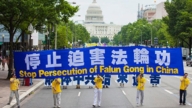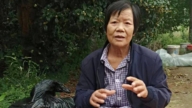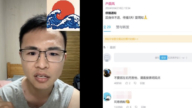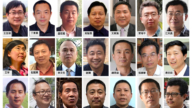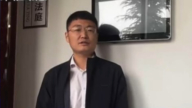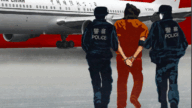【新唐人2013年09月17日讯】大陆“最高人民法院”、和“最高人民检察院”(两高),针对网路犯罪言论的最新司法解释出台后,引发了以法律界为首的反对声浪。不断有律师以个人名义向“两高”提出异议。近期,更有法律界人士进一步发起联合上书人大常委会的签名活动,要求人大废止“两高”有关网路犯罪的司法解释,并追究“两高越权立法”的法律责任。这一做法引发了法律界震动和律师们的积极响应。
由北京律师程海、王全璋、黎雄兵等多名律师,共同起草的“建议全国人大常委会依法审议并废止两高网路犯罪司法解释”公民监督建议书,9月15号下午在网路公开征集签名,随后正式寄出。
建议书提出,“两高”关于网路犯罪言论的司法解释,多处涉嫌越权立法,应该依法废止。
北京律师王全璋:“就是因为两高扩大权利,越权解释,实际上立法来惩罚公民的一个所谓的不当言论,实际上限制了公民的言论自由。我们主要是根据法律上的一些规定,以及法律上,特别是《人大常委会监督法》,要求人大去废止这种两高的司法解释。 ”
虽然这份建议书在新浪微博公开不久立即遭到封杀,但短短时间内,依然得到了多名律师及法律界人士的积极响应。
中国大陆法律界人士普遍认为,按照《宪法》六十七条和《立法法》四十二条规定,司法解释权在全国人大常委会,而不是最高法院和最高检察院。“两高”作为司法机构,并没有立法权,因此,它们的“司法解释”不具有法律效力。
北京市律师协会宪法人权委员会委员杨学林:“它对寻衅滋事的解释进行了扩大化,包括网路上的寻衅滋事,以及网路的言论如何影响到客观现实当中的社会秩序问题,这些呢,由司法解释来做,我们认为是不合适的,应该由立法部门进行法律的修改。”
建议书还指出,“两高”释法的根本目地,是为当局打击网路言论自由提供法律依据,试图遏制公众对中共各种公权力违法不满的网路曝光、监督、控告等行为。
杭州律师王成:“我们认为两高出来的解释,跟今年所出现的….近期打击所谓的‘网路谣言’的活动是紧密联系的,这个在一定程度上,它应该说表现的非常明显,它就是要压制公民的言论自由,压制公民利用网路来进行反腐的一些活动。”
杭州律师王成9月9号也在网上呼吁中共人大常委会处理“两高”的越权问题。王成还起草了联署公开信。
中国律师界除了联署公开信或建议书之外,还有很多律师纷纷以个人的名义写信给中共人大,要求追究“两高”的法律责任。
被称为律坛怪侠的湖南维权律师杨金柱,11号晚在博客上表示,他将以中国公民和律师的双重身份,向中共人大实名举报“两高”关于网路言论司法解释违反宪法,他要求人大对“两高”的司法解释进行违宪审查。
多年来,中国法律界关于“两高”司法解释权的争议一直不断。如﹕ 1999年10月30号,以及2001年6月4号,“两高”两次联名出台“关于利用邪教组织犯罪”的若干司法解释。这些司法解释虽然被法律界的很多律师认定“不具备任何法律效力”,甚至违反了《宪法》,却依然被中共利用来打击“法轮功”长达十多年之久。因此,一些律师对这次中共能否接受律师界建议,命令“两高”废除对网路言论犯罪的司法解释,并不抱有太大希望。
采访编辑/ 张天宇 后制/李月
Lawyers Jointly Sue China’s Two Top Legal Authorities
The latest judicial interpretation of cyber crimes by
China’s Supreme People’s Court and
China’s Supreme People’s Procuratorate (The Top Two)
has triggered strong opposition led by the legal community.
Lawyers continue to raise objections using their real names.
Lawyers have started collecting signatures for a joint letter
to the National People’s Congress’ (NPC) standing committee,
asking the NPC to abolish the judicial interpretation by
The Top Two, and to charge their unauthorized legislation.
This has shaken China’s legal community
and had a positive response from lawyers.
Beijing lawyers Cheng Hai, Wang Quanzhang, Li Xiongbing
and others jointly drafted a petition titled,
“Proposal to NPC Standing Committee to Exam and Abolish
The Top Two’s Judicial Interpretation of Cybercrime Crime."
They called for online signatures on the afternoon of
September 15th and then officially mailed them.
The proposal pointed out that The Top Two’s interpretation
of cybercrime involves many violations of their power,
and should be abolished according to the law.
Beijing lawyer Wang Quanzhang: “The Top Two
expanded their power to establish a law aiming at
punishing citizens for so-called inappropriate remarks,
but it in reality it limits citizens’ freedom of speech.
We are mainly making our request for the NPC to abolish
The Top Two’s judicial interpretation based on legal provisions,
especially the ‘NPC Standing Committee Supervision Law.'"
Although this proposal was blocked soon after
it was published on Sina Weibo,
it still got positive responses from many lawyers
and legal professionals.
Mainland China’s legal professionals generally say that,
according to Article 67 of China’s constitution and
Article 42 of Legislation Law,
the right of judicial interpretation lies with NPC,
not The Top Two.
The Top Two are judiciary organizations.
They do not have legislative power,
so their “judicial interpretation" is without legal effect.
Yang Xuelin, Beijing Lawyers Association Committee Member:
“It broadens the definitions of causing trouble on the internet,
and online remarks’ impact to social orders.
We think it is inappropriately interpreted by the judicial system.
It should be modified by the legislative body."
The proposal also noted that the goal of The Top Two’s
interpretation is to crack down on online information leaks,
further monitor netizens, and punish any complaints about
the crimes of the Chinese Communist Party (CCP).
Hangzhou lawyer Wang Cheng:
“We believe The Top Two’s interpretation
is closely tied to the recent crackdown on 'online rumors.'
It is very obvious it wants to suppress freedom of speech,
and repress people’s online anti-corruption activities."
On September 9, Hangzhou lawyer Wang Cheng
also spoke out online, calling upon the NPC to handle
The Top Two’s violation of power.
Wang Cheng also drafted a joint open letter.
Many other Chinese lawyers wrote individually to the NPC
calling for The Top Two to be held to their legal responsibility.
Hunan Human Rights lawyer Yang Jinzhu said on his Weibo
he would use his real name to report to the NPC on
the unconstitutional interpretation of The Top Two
as a Chinese citizens and a lawyer.
He would ask the NPC to conduct investigation
on The Top Two’s violation of the law.
Over the years, China’s legal community has constantly
debated The Top Two’s power of judicial interpretation,
such as the joint judicial interpretations by The Top Two
on October 1, 1999 and June 4, 2001
on “Committing Crimes Using Cult Organizations."
These judicial interpretations were used by the CCP to
crack down Falun Gong for over a decade,
although many lawyers found that this is without
legal effect and even violates the law.
Therefore, some lawyers do not hold much hope on
whether the CCP would accept the suggestion by lawyers to
abolish the judicial interpretation of online speech crime.



